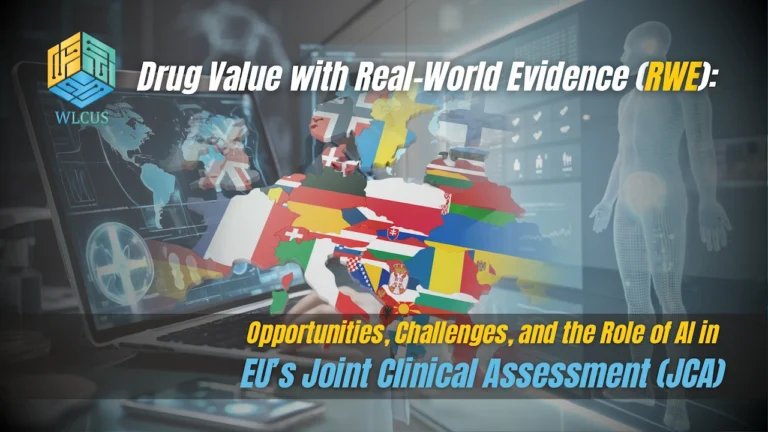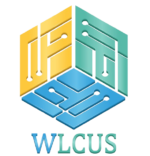Drug Value with Real-World Evidence (RWE):
Opportunities, Challenges, and the Role of AI in EU’s Joint Clinical Assessment (JCA)

What is Real-World Evidence and Why It Matters in the EU HTA Landscape
Real-World Evidence (RWE) refers to health data gathered outside of traditional clinical trials. It comes from sources like electronic health records, patient registries, insurance claims, and wearable health devices.
In the context of the European Union’s Health Technology Assessment (EU HTA) Regulation, RWE plays a growing role. The goal of HTA is to evaluate the added therapeutic benefit of new treatments. However, randomized controlled trials (RCTs) may not reflect how drugs perform across broader, diverse patient groups in real-world settings.
RWE helps fill this gap. It offers insights into actual patient outcomes, long-term effectiveness, safety profiles, and treatment patterns. This added value is critical in supporting reimbursement decisions, especially for drugs addressing unmet medical needs or rare diseases.
Health authorities increasingly rely on RWE to enhance evidence-based decision-making. It complements RCTs by demonstrating how interventions work in routine clinical practice, across various populations, and over time.
For the EU Joint Clinical Assessment (JCA), using RWE ensures more inclusive, timely, and practical evaluations of new health technologies. As the HTA Regulation becomes fully operational, RWE’s relevance will increase, particularly for oncology, advanced therapies, and orphan drugs.
Overview of the EU Joint Clinical Assessment (JCA) under the New Regulation
The EU HTA Regulation, which came into effect in 2022, establishes a unified Joint Clinical Assessment (JCA) across member states. This centralized evaluation aims to streamline how new drugs and medical technologies are assessed for clinical benefit.
Historically, health technology assessments were fragmented across EU countries. Each national authority conducted its own evaluation, causing duplication and delays. The JCA removes this inefficiency by allowing a single clinical assessment to be used across all member states.
The JCA will become mandatory starting in 2025 for oncology drugs and advanced therapy medicinal products (ATMPs), expanding to other categories over time. Manufacturers must submit data that satisfies both regulatory approval and health technology evaluation requirements.
Unlike regulatory submissions, which focus on safety and efficacy, the JCA emphasizes comparative clinical value. Evidence must demonstrate therapeutic advantage over existing treatments.
Integrating Real-World Evidence into this framework will be critical. It enhances understanding of long-term outcomes, adherence, and real-life effectiveness. However, harmonizing methodologies and ensuring data quality remain key concerns.
The JCA will significantly impact market access timelines, pricing negotiations, and reimbursement strategies. Companies that prepare early by incorporating robust RWE into their dossiers will gain a strategic advantage.
Opportunities Offered by Real-World Evidence in Drug Value Assessment
Real-World Evidence presents several strategic benefits for companies aiming to demonstrate the value of their products within the JCA framework.
Key opportunities include:
- Enhanced Patient Insights: RWE captures diverse patient populations often excluded from clinical trials. This includes elderly patients, those with comorbidities, and underserved groups.
- Faster Time-to-Market: Robust RWE can support conditional approvals or early access programs, helping companies bring therapies to patients more quickly.
Informed Reimbursement Decisions: Health payers increasingly demand real-life data to validate long-term value, cost-effectiveness, and outcomes-based pricing.
- Support for Rare Diseases: For ultra-rare conditions with limited trial data, RWE can be critical in building the evidence base for decision-makers.
- Post-Market Surveillance: RWE enables long-term safety monitoring and real-time pharmacovigilance, meeting EU regulatory expectations.
Additionally, RWE fosters trust by offering transparent and relevant evidence from real clinical settings. When integrated early in the development process, it strengthens value propositions and supports lifecycle management.
Overall, RWE is not just a compliance requirement, it’s a tool for competitive differentiation in a value-based healthcare system.
Core Challenges of Integrating RWE in JCA Processes
Despite its benefits, using RWE in the Joint Clinical Assessment process presents several challenges that must be addressed for effective implementation.
Common challenges include:
- Data Quality and Standardization: Inconsistent data sources, missing values, and varying coding systems can reduce reliability.
- Methodological Uncertainty: Observational studies risk biases that must be corrected through careful design, such as propensity score matching or instrumental variable analysis.
- Lack of Guidance: While EMA and HTA bodies support RWE use, formal guidance on how to generate and submit RWE in JCA is still evolving.
- Interoperability Issues: Fragmented health data infrastructure across EU countries complicates the aggregation and harmonization of RWE.
- Confidentiality and Privacy: Collecting and using patient-level data must align with GDPR and national laws.
Manufacturers must invest in advanced analytics, governance frameworks, and real-world data partnerships to address these barriers. Ensuring transparency in study design and data interpretation is also critical for HTA acceptability.
How Artificial Intelligence Enhances the Use of RWE in EU JCA
Artificial Intelligence (AI) significantly improves how Real-World Evidence is collected, analyzed, and applied in drug evaluations under the EU Joint Clinical Assessment.
Key contributions of AI include:
- Data Integration: AI tools help merge structured and unstructured data from multiple sources—clinical records, registries, and wearables, into coherent datasets.
- Natural Language Processing (NLP): NLP extracts insights from physician notes, imaging reports, and case summaries, enabling richer evidence synthesis.
- Predictive Modeling: Machine learning algorithms forecast treatment outcomes, patient adherence, and long-term impacts, supporting comparative effectiveness studies.
- Bias Reduction: AI can adjust for confounding variables, improving the reliability of non-randomized RWE.
- Automation and Efficiency: AI accelerates the process of cleaning, categorizing, and interpreting large datasets, reducing time and cost.
AI does not replace human oversight but acts as a powerful augmentation tool. When combined with transparent methodology and clinical validation, it enables more precise and efficient health technology assessments.
Strategic Considerations for Pharma Companies
Pharmaceutical companies preparing for the EU HTA Regulation and JCA process must embed RWE and AI capabilities into their core operations.
Strategic actions to take:
- Start Early: Plan RWE generation from Phase II trials onward to ensure data is available at launch.
- Collaborate with Stakeholders: Engage early with HTA bodies, clinicians, and patients to define relevant endpoints and data sources.
- Invest in Infrastructure: Build or partner with platforms capable of secure, scalable, and compliant RWE analytics.
- Develop Cross-Functional Teams: Combine regulatory, medical, data science, and market access expertise to align RWE strategies with business objectives.
- Monitor Policy Changes: Stay updated with evolving JCA requirements, data submission templates, and European HTA guidelines.
Proactive planning and execution can help companies demonstrate comparative value effectively and maintain access in a competitive EU market.
RWE vs Traditional Clinical Trials: Key Differences
- Scope: RCTs test efficacy in ideal settings; RWE evaluates effectiveness in real-world practice.
- Population: RWE includes broader, more diverse patient groups.
- Data Collection: Clinical trials follow strict protocols; RWE pulls from routine care.
- Regulatory Use: RCTs are gold-standard for approval; RWE supports reimbursement and safety monitoring.
Together, they offer a more complete picture of a drug’s value.
Future Outlook for RWE, AI, and EU HTA Policy
Looking ahead, the integration of Real-World Evidence and AI in EU Joint Clinical Assessments will likely expand. Policy support, technological advancement, and stakeholder collaboration will drive adoption.
Future trends may include:
- Standardized EU-wide RWE frameworks
- Increased use of digital health tools for continuous evidence generation
- Real-time HTA using AI-powered dashboards
The shift toward value-based care and unified assessment across Europe makes RWE and AI not optional, but essential.
